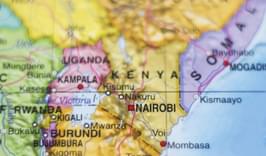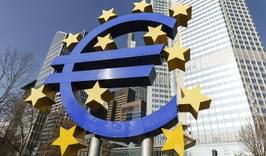Currencies
Brazil: Caution Over The Signs
The confidence indexes of executives in various economic sectors as well as of consumers have stopped sinking and started to show signs of recovery. Since these indexes are leading indicators of the future behavior of the economy (reversals in the pattern of confidence indexes precedes reversals of the activity indicators), there are reasons for a feeling of relief. But a certain dose of caution…
4 Jul 2016
Fighting for pricing in Africa
Kenya is planning a new Eurobond issuance, which although unlikely to price better than the country’s last offering, is expected to not be far off. The country is still able to attract investors to its local currency debts, especially as another relatively strong performer in the region on the foreign debt side, Nigeria, has experienced significant volatility in its currency.
1 Jul 2016
Emerging Europe emerges from Brexit’s wake
Although Emerging Europe was undoubtedly the most significantly affected region after the Brexit vote result sent out shockwaves globally, the region’s bond and currency markets recovered quickly.
29 Jun 2016
Commodities a top influencer on EM performance
Emerging markets are clearly susceptible to factors like a US Federal Reserve interest rate hike and Brexit, but they are most vulnerable to fluctuating commodity prices. Although exports have seen their currencies strengthen and bond yields fall on rising commodity prices, interestingly, EM commodity importers have not yet felt the negative effects of higher prices.
28 Jun 2016
Central Banks: How Low Can You Go?
Denmark, Sweden, the Eurozone, Switzerland and Japan. The Central Banks of these countries, listed in chronological order, are the pioneers of negative interest rates. Under conventional monetary policy, banks earn income (interest) from cash reserves parked at the Central Bank. Under negative interest rates, banks are penalized and charged a fee for holding cash.
23 Jun 2016
Naira drop hits investments and lending with mixed results
The relaxation in Nigeria’s FX policy has led to a significant devaluation of the naira. Investment will still likely be slow on the local currency side, but foreign currency investment could soon rise. Nigeria’s banking sector will likely suffer in the short term from the naira’s devaluation, but could see a pickup in the long term through dollar inflows.
22 Jun 2016
When yuan met yuan: potential Chinese bank rules could prompt FX convergence
The People’s Bank of China’s decision to consider allowing local onshore banks to trade in China’s offshore market could lead to a convergence between the two, which would aid in the internationalisation of the renminbi and also assist in the development of the country’s bond markets.
22 Jun 2016
European currencies stable despite Brexit woes
Although a Brexit vote will affect the global markets, the CEE region and in particularly the UK’s larger trading partners within the region such as Poland will be most heavily impacted. However, although concerns over Brexit have caused fluctuations within these markets’ currencies, they have remained relatively resilient over the course of the last month.
21 Jun 2016
Burning money: petrocurrencies unlikely to gain
The slow rise in the price of oil has had an effect on petrocurrencies across both developed and emerging markets, but not to a significant extent. The losses these currencies incurred resulting from the collapse in oil prices has offset any gain they are likely to see in the near future, although unpegged currencies will ultimately perform better than their pegged counterparts.
15 Jun 2016
Only Brexit clouds EM outlook
While emerging markets have benefitted from a dovish stance from the US Federal Reserve and low yielding developed market bonds, the threat of Brexit could cast a shadow over their performance.
13 Jun 2016









